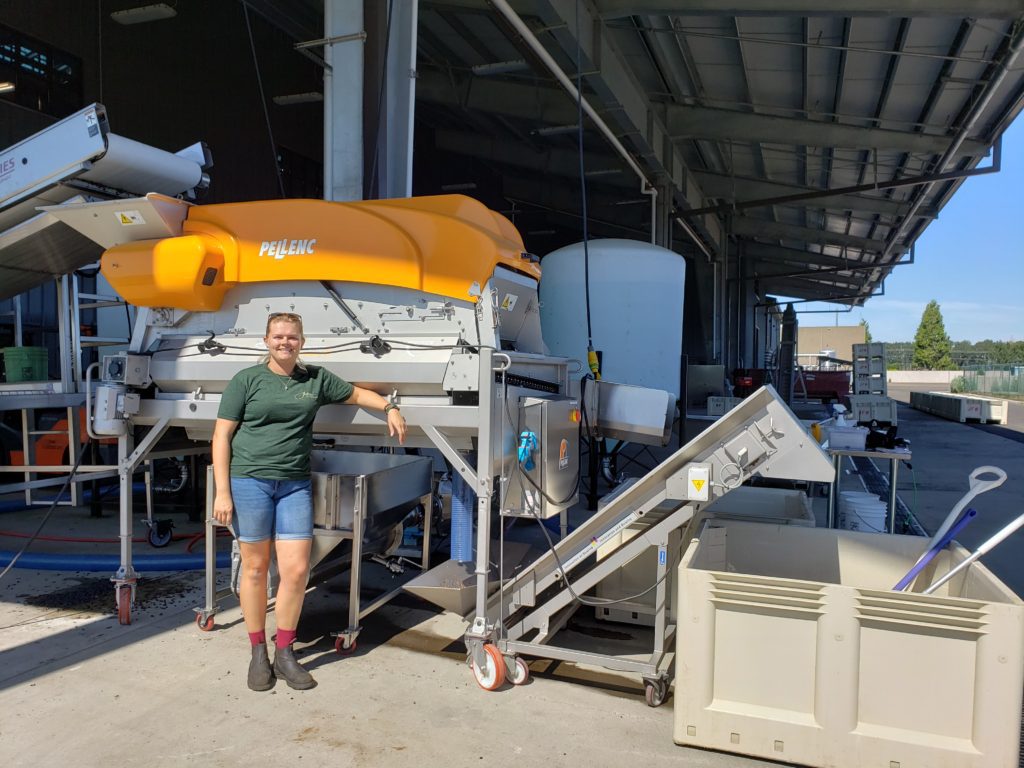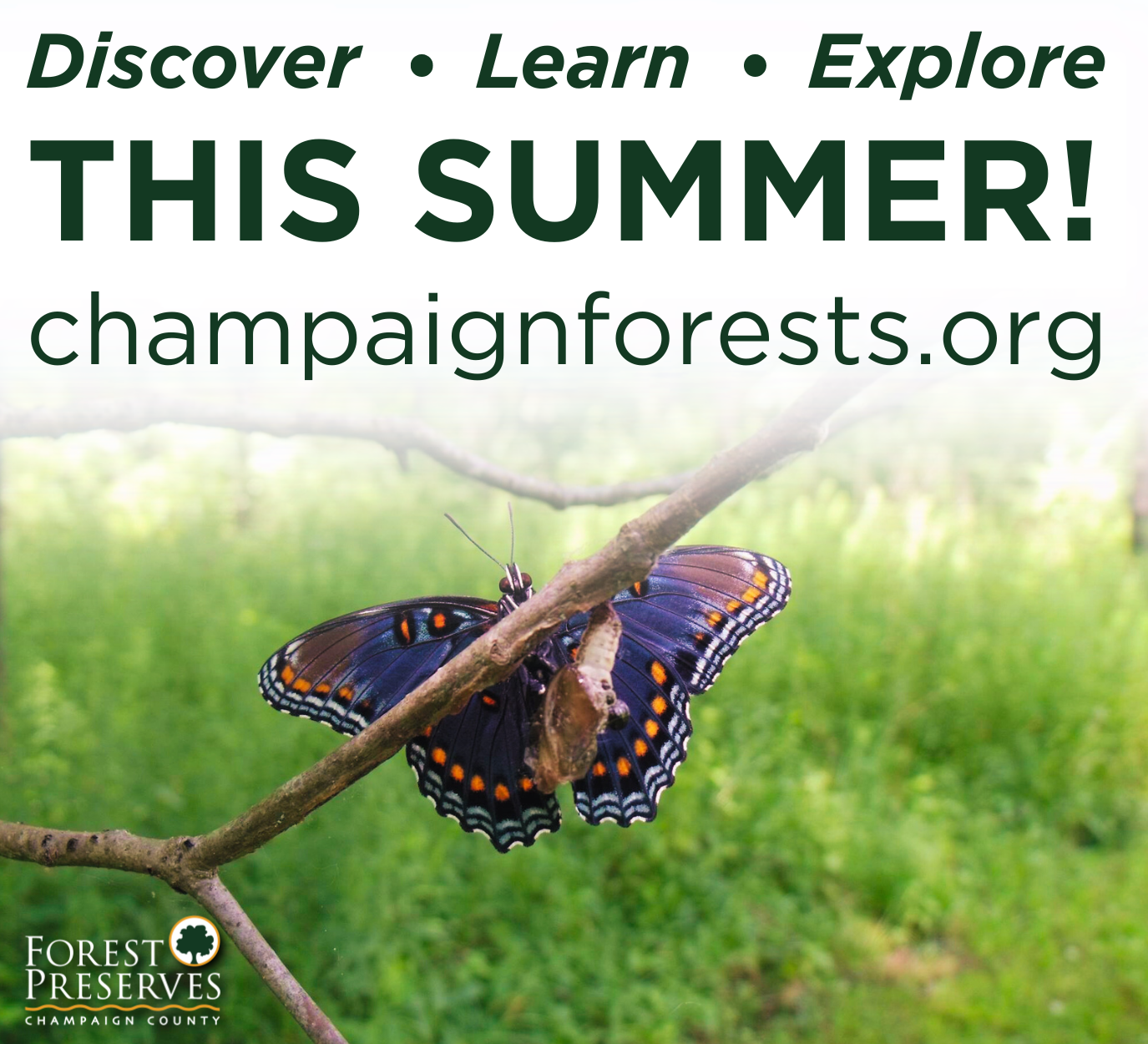BY DANI TIETZ
dani@mahometnews.com
To Natalie Ellis, the world is a grape.
Or rather, grapes have taken Natalie Ellis around the world.
The Mahomet-Seymour graduate has followed the grape harvest season all over the world, including stays in Africa, Australia, Italy, Uruguay and the western United States.
That all changed, though, a few months ago when Ellis decided to stay put in McMinnville, Ore., to work for Jackson Family Wines as a Cellar Hand.
Ellis’ journey wasn’t always about grapes or wine, though.
“I actually started through Mahomet for their food science class, or food chemistry class, you can take, I was always interested in chemistry and science,” Ellis said.
“And I really fell in love with that kind of, I can play with food, but I do science as well.”
Ellis went on to the University of Illinois, where under the food sciences program she had an opportunity to spend a semester in Southern France. Although Ellis was interested in following in her father’s footsteps into the meat science industry, she decided to feed her curiosity about the winemaking industry by fulfilling an internship requirement in the Cotes du Bourg region for a month.
Getting up at 4 a.m. to learn about viticulture, enology, vineyard management, and the wine industry worldwide really excited her.
“My friends were like, ‘if you’re excited to get up at that time in the morning, you must really want to go into this. You need to think about going into this,’” Ellis said.
She returned to the States to graduate with her class of 2013, knowing that in the upcoming months, she wanted to get a harvest position.
It didn’t take Ellis long to realize that the industry was looking for trained and well-educated professionals. She left the States and returned to Europe, where she continued to study viticulture and enology at Montpellier SupAgro and Bordeaux Sciences Agro.

The first year in the program that takes about 30 students per program year, focuses on the basics of winemaking and viticulture while the second year gives students the opportunity to focus on a specific avenue, such as research or Mediterranean wine.
Ellis decided to focus on the business side of winemaking because, she said, “a little bit of business never hurts in any career you’re going into.”
While studying in Italy, Ellis prepared her thesis on how to market English sparkling wine within the English marketplace.
With the experience and education she needed, 2015 was the year when Ellis stepped back into the harvest market, looking for a position.
“There’s two ways to think about it in winemaking,” Ellis said.
Her roommate is a good example of one type of winemaker. She wants to make a specific type of wine, so when looking for harvesting opportunities, she focuses on areas where the grapes for that wine are grown: New Zealand, Australia and/or Oregon.
But Ellis, on the other hand, is more interested in the winemaking process for all varieties of wine, and so she focuses on experiences rather than types.
“I look at any education as good education,” she said.
“And so sometimes learning about other varieties, it’s good to come back to where I work, because maybe we could change how we do one little thing and it will affect it just a little bit more and I could bring out a new flavor profile.”
Being on the road, or rather, many times, in the air, Ellis enjoyed the lifestyle of three to six months in a location, working day and night on a harvest, then moving on to the next site.
“You see grapes come in and now it’s wine,” she said.
But for as many miles as Ellis has traveled, there is always something that connects her from place to place.
“For as big of a world as we are, in the wine industry it’s so tiny,” she said.
“I have people here who I’ve never met, but they’ve met a friend of mine at a different place. And they’ve been to the same winery. And we have these small little connections around the world that you suddenly know so many people.
“We are very much a community that likes to support each other.”
It’s the time that the winemakers spend together while pulling grapes from a truck, to making sure the debris is removed from them, to getting them in the barrel and waiting until the moment the liquid can be blended or tested, that brings the workers closer together.
During that time, Ellis also likes to think about the end product. She knows that while she may not be with a customer as they pick wine from the shelf, she is creating a product that will be something to savor.
“I think what’s fun for me is I’m making something that people get to enjoy on any kind of occasion: it could be they’re having a bad day and they need a pick me up or they’re celebrating someone’s getting married,” she said.
“But it’s also making wine that they will just come home and they’re like, ‘I just want a glass of wine tonight just to sit and relax.’”
Ellis also can’t help but geek out over the winemaking process.
“These very simple reactions are going on,” she said. “You get something that tastes completely different than when it started.”
As the Cellar Hand, Ellis is responsible for ensuring that grapes are processed correctly: whether that be adding yeast, putting them into a cylinder or square tanks or making sure the temperature is just right.
“It’s like a fun little adventure as well,” she said.
At the beginning of harvest season, teams wait for truckloads to come in. Some days, processing will be done by morning. Other days, the team works from sun-up to sun-down Monday through Sunday.
“Harvest is your crazy time where we’re all exhausted,” Ellis said.
Ellis enjoys the problem-solving that goes with making each day unique. Whether it’s rocks that get stuck in the machine or a leaking tank that needs immediate attention, Ellis said it’s important to always be on your feet.
Looking back over the last decade, through all the experiences she’s had learning how to make wine, Ellis has also learned about people and cultures just by proximity.
“There are so many different cultures in this world,” she said. “Wine affects all of those cultures very differently.
“I think about places like Italy, where opening a bottle of wine for dinner is to share is about enjoying that wine with the food and having fun as a big group of people,” she said.
“And then you look at places like South Africa. And it’s like, sharing wine is about having a connection to another person. And it’s showing pride and what they’ve done and also showing pride in their country.”
These experiences have helped Ellis look beyond political opinions, economic situations and cultural dynamics.
“Human needs are very basic,” she said. “What people need and want, human interaction is very basic.”
Ellis’ adventures have taught her that possession of the latest gadget is not required for survival or even creation.
She’s been on job sites where she’s had access to one pump to make wine.
“You learn what you can handle,” she said. “It leads on to other aspects as well.”
The rhythm of the Earth’s cycles, traveling around the world alone and overcoming unexpected day-to-day happenings, have helped Ellis realize that everything is going to work out.
“I’ve learned that I can handle a lot more than I realized,” she said. “When the world is falling apart around me and things are going wrong, I can handle it, it’s going to be okay.”
Ellis has learned that when she’s traveling, she has little or no control over whether the plane gets to where she’s going. There have been wines that have not turned out the way they were supposed to because grape development is dependent upon Mother Earth.
She’s had to develop patience in understanding what she can do to make a situation better in the moment, how she can fix a problem for the future or that it’s okay to surrender a day and just go to bed.
“I’ve also realized, from what people have told me, working with them, and how simple just having a smile on your face can help everybody’s mood and being,” she said.
It is not unusual for Ellis to be the goofy and peppy one on a job site.
The groups usually come up with endearing games to play throughout the week to help keep everyone’s spirits up.
Through those experiences, Ellis has gained the confidence to be a self-sufficient woman who is organized and can problem-solve a variety of challenges.
Part of her work ethic comes from growing up in rural Mahomet where she learned how to handle the grind of farm work.
The Ellis’ small family farm gave her the opportunity to see how long workdays were not unusual and that concessions often have to be made to ensure that the property runs efficiently.
This mindset and work ethic helped Ellis land her first full-time job on Jackson Farm in 2018.
“The thing here in Oregon is it’s a very small wine community,” she said. “So when job opportunities come up, you kind of gotta grab on when you can get them. They don’t come up very often.”
Ellis’ opportunity pinned her against coming back to the States from Australia and getting right back into harvest in Oregon.
“I love the travel and I love the harvest, but I was like, I’m ready to just kind of calm down for a little bit and have a bit of stability,’” she said.
Settling down puts Ellis in a quaint town an hour south of Portland and an hour away from the Pacific coast and an hour east of the Cascade Mountain range.
She’s not sure if McMinnville will be her forever home, but for now, she is enjoying not having to think about where the next job will take her while putting in seven-day work weeks.
With the population of Urbana, with the hometown feel of Mahomet, Ellis has realized that there is a comfort to being in a small town or with a small group.
Going into her master’s program in Europe, Ellis feared what her life would look like away from her close-knit family.
“I took this giant leap of faith,” she said. I remember my mom saying to me, as she was leaving, ‘If you don’t like this, you don’t have to stay here.’”
Knowing her daughter was pushing herself to her limit, Gail also wanted to give her permission to say enough and find another way to happiness, too.
Ellis said she always felt very supported by both of her parents.
“They never told me my dreams were too big or too crazy,” she said. “They were like, if that’s what you want to do, we’ll help you get there. It’s nice to know that you have that support.”
Gail passed away in December of 2014.
“My mom was that person I call when I was like, really frustrated,” Ellis said. “And I’m like, I just need to vent. And for someone to say it’s going to be okay. And she was that person. And all of a sudden I didn’t have that.”
In the time it took Ellis to find her footing again, she also realized that when it came to the adventure of life, ultimately, she wanted to be happy.
“That’s my priority in life,” she said. “I’m not going to let anybody else determine my happiness. And with that is, at the end of the day, if I’m not liking it, I’ll find something new, find something different.
“But I also just learned that with that situation everything’s gonna be okay.
“Like, your world seems like it’s falling apart. But you’re gonna be okay. You’re going to cry, you’re going to be upset, you’re going to be frustrated, you’re gonna yell, scream, whatever, you know, deal with all these emotions. But at the end of the day, you’re still okay.”
Even today, Ellis continues to feel supported by her dad, Michael.
While many of her peers are “settling down,” Michael knows that may not be his daughter.
“He’s like, ‘I’m not going to be surprised if you call me one day and say I’m moving to Europe for the next two years,'” she said.
His steadfast support is what Ellis needs as she navigates adulthood.
“If I’m having a hard time, I can call my dad and he’s never going to tell me I’m wrong or what I’ve done, or what I did was a terrible idea,” Ellis said. “He’s going to be like you’re going to be okay. How can we solve it? Is there something that I can do? Is there something I can help you with?”
She remembers her mother being the same way, which helped her learn how to prioritize her life.
Family continues to be that cornerstone.
Ellis describes visits with or from her dad and sister, Danielle, as Christmas.
Even though she’s more than 2,000 miles away, technology helps them have that face-to-face contact.
“In many ways, I work harder with the relationships I have at a distance because I know I need a contact to constantly in order to make sure I’m still involved in their life,” she said.



